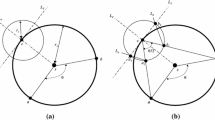Abstract
With the rapid development of online shopping, usually, sellers and buyers have virtual identities, which are not verified beforehand. As a result, establishing trust between sellers and buyers is much harder than before where sellers and buyers would meet face to face before making any transaction. In this work, we propose a method for the marketplace management under anonymous buyers and sellers which makes the honest behavior the most profiting action for rational sellers. In this method, the market operator adopts an honesty promoting mechanism based on direct reward and punishment in which being honest is the most profitable action. In most online marketplaces, a fee or commission is deducted from every payment before settling the account up with the seller. As such, with the dynamic adjustment of the fee, it is possible to reward or punish the seller. The correctness of this method is proven using mathematical models. The apparatus, processes, and algorithms for the marketplace are elaborated in detail so that market operators can easily apply the method in their existing marketplaces.








Similar content being viewed by others
References
Bakos, J. Y. (1991). A strategic analysis of electronic marketplaces. MIS Quarterly, 15(3), 295–310.
Wang, S., & Archer, N. P. (2007). Electronic marketplace definition and classification: Literature review and clarifications. Enterprise Information Systems, 1(1), 89–112.
What is electronic marketplace? Definition and meaning. Available: http://www.businessdictionary.com/definition/electronic-marketplace.html. Accessed 12 December 2016.
Online marketplace. Available: https://en.wikipedia.org/wiki/Online_marketplace. Accessed 12 December 2016.
Malone, T. W., Yates, J., & Benjamin, R. I. (1987). Electronic markets and electronic hierarchies. Communications of the ACM, 30(6), 484–497.
Archer, N., & Gebauer, J. (2001). B2B applications to support business transactions: Overview and management considerations. In Business to business electronic commerce: Challenges and solutions. (p. 22).
Kerr, R., & Cohen, R. (2006). Modeling trust using transactional, numerical units. In Proceedings of the international conference on privacy, security and trust: Bridge the gap between PST technologies and business services (pp. 593–604). Markham, Canada.
Resnick, P., & Zeckhauser, R. (2002). Trust among strangers in internet transactions: Empirical analysis of ebay’s reputation system. In The economics of the internet and e-commerce. Elsevier.
Tran, T., & Cohen, R. (2004). Improving user satisfaction in agent-based electronic marketplaces by reputation modelling and adjustable product quality. In Proceedings of the third international joint conference on autonomous agents and multiagent systems (Vol. 2, pp. 828–835). New York.
Bhattacharjee, R., & Goel, A. (2005). Avoiding ballot stuffing in ebay-like reputation systems. In Proceedings of the ACM SIGCOMM workshop on Economics of peer-to-peer systems (pp. 133–137). Philadelphia, PA, USA.
Dellarocas, C. (2002). Goodwill hunting: An economically efficient online feedback mechanism for environments with variable product quality. In Proceedings of the international workshop on agent-mediated electronic commerce (pp. 238–252). Berlin.
Liu, Y., & Zhang, J. (2014). An incentive mechanism designed for E-Marketplaces with limited inventory. Electronic Commerce Research and Applications, 13(2), 110–127.
Kerr, R., & Cohen, R. (2010). Trust as a tradable commodity: A foundation for safe electronic marketplaces. Computational Intelligence, 26(2), 160–182.
Li, Q., Zhang, J., & Martin, K. (2012). Feedback as “shadow of the present”: An alternative to reputation systems for E-Marketplaces. In Proceedings of the 11th international conference on trust, security and privacy in computing and communications (pp. 334–341).
Vu, L. H., Zhang, J., & Aberer, K. (2014). Using identity premium for honesty enforcement and whitewashing prevention. Computational Intelligence, 30(4), 771–797.
Papaioannou, T. G., & Stamoulis, G. D. (2010). A mechanism that provides incentives for truthful feedback in peer-to-peer systems. Electronic Commerce Research, 10(3), 331–362.
Swamynathan, G., Almeroth, K. C., & Zhao, B. Y. (2010). The design of a reliable reputation system. Electronic Commerce Research, 10(3), 239–270.
Jøsang, A., & Ismail, R. (2002). The beta reputation system. In Proceedings of the 15th bled electronic commerce conference (Vol. 5, pp. 2502–2511). Slovenia.
Morid, M. A., & Shajari, M. (2012). An enhanced e-commerce trust model for community based centralized systems. Electronic Commerce Research, 12(4), 409–427.
Jurca, R., & Faltings, B. (2003). An incentive compatible reputation mechanism. In Proceedings of the IEEE international conference on e-commerce (pp. 285–292). Newport Beach: IEEE. http://ieeexplore.ieee.org/abstract/document/1210263/.
Beta Distribution Applet. Available: http://homepage.stat.uiowa.edu/~mbognar/applets/beta.html. Accessed 12 December 2016.
Ghaffarinejad, A., & Akbari, M. K. (2013). An incentive compatible and distributed reputation mechanism based on context similarity for service oriented systems. Future Generation Computer Systems, 29(3), 863–875.
Braynov, S., & Sandholm, T. (2002). Incentive compatible mechanism for trust revelation. In Proceedings of the first international joint conference on Autonomous agents and multiagent systems (pp. 310–311). Bologna, Italy.
Braynov, S., & Sandholm, T. (2002). Trust revelation in multiagent interaction. In Proceedings of the workshop on the philosophy and design of socially adept technologies (Vol. 2, pp. 57–60). Minneapolis.
Hu, J., & Lu, X. (2014). A reputation model of e-commerce based on iterated prisoner’s dilemma game. In Proceedings of the international conference on management of e-commerce and e-government (pp. 24–27).
eBay Money Back Guarantee. https://pages.ebay.com/help/policies/money-back-guarantee.html. Accessed 12 December 2016.
EBay. Available: https://en.wikipedia.org/wiki/EBay. Accessed 12 December 2016.
Sulin, B., & Pavlou, P. A. (2002). Evidence of the effect of trust building technology in electronic markets: Price premiums and buyer behavior. MIS Quarterly, 26(3), 243–268. http://www.jstor.org/stable/4132332.
Pavlou, P. A. (2003). Consumer acceptance of electronic commerce: Integrating trust and risk with the technology acceptance model. International Journal of Electronic Commerce, 7(3), 101–134.
Stucke, M. E. (2013). Is competition always good? Journal of antitrust Enforcement, 1(1), 162–197.
Porter, M. E. (2006). How competitive forces shape strategy. Strategic Planning: Readings, 2, 102–117.
Author information
Authors and Affiliations
Corresponding author
Rights and permissions
About this article
Cite this article
Riazati, M., Shajari, M. & Khorsandi, S. An incentive mechanism to promote honesty among seller agents in electronic marketplaces. Electron Commer Res 19, 231–255 (2019). https://doi.org/10.1007/s10660-018-9298-7
Published:
Issue Date:
DOI: https://doi.org/10.1007/s10660-018-9298-7




